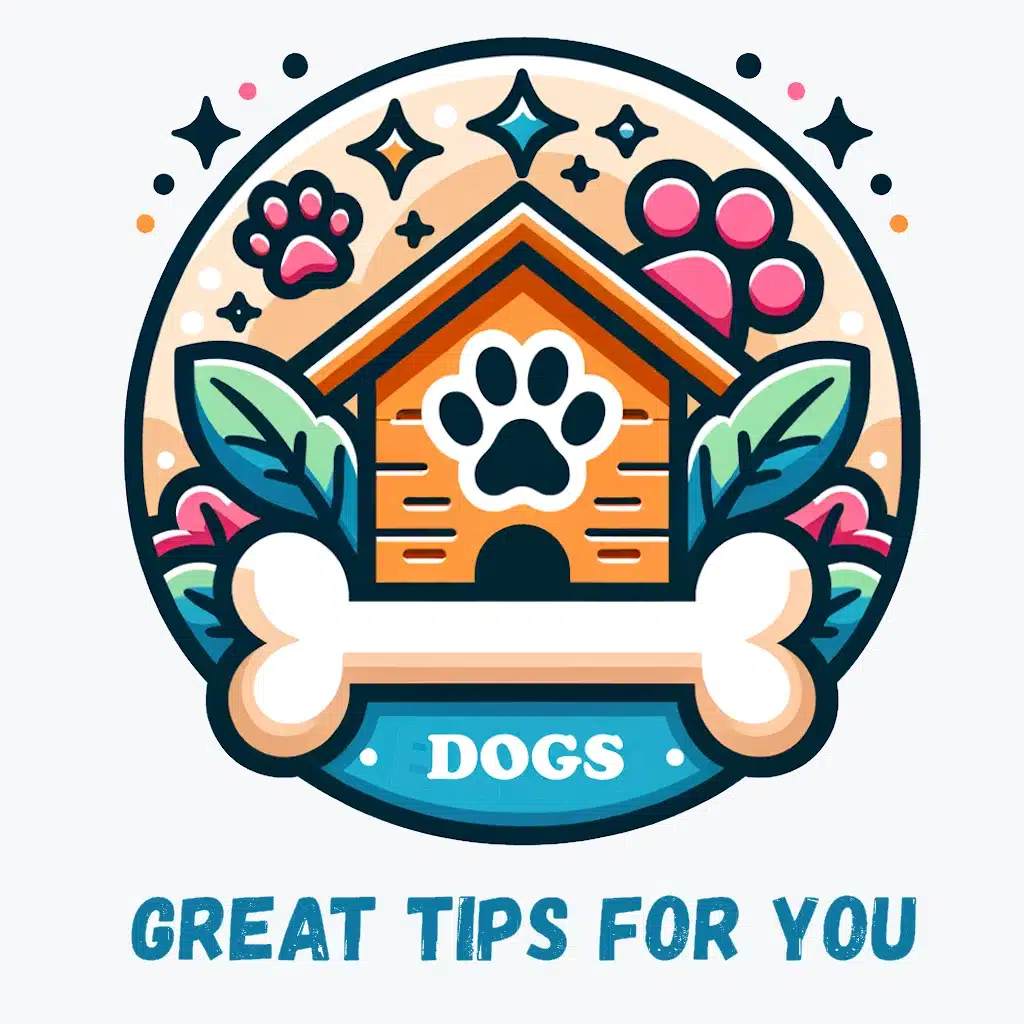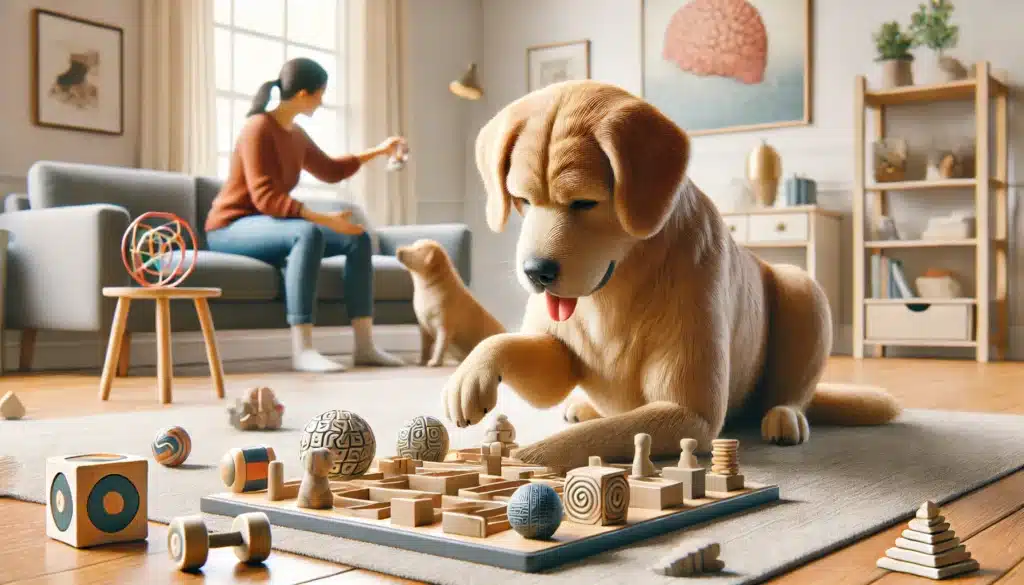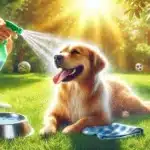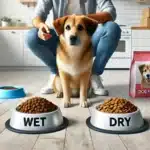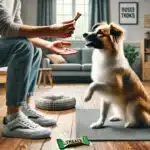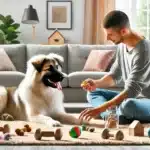Keeping your dog’s brain active is just as important as physical exercise. Whether you have a curious puppy, an energetic adult, or a wise senior, brain games offer mental stimulation, prevent boredom, and strengthen your bond — all while being fun for both of you.
In this guide, you’ll find a variety of brain games tailored for puppies, adults, and senior dogs, with step-by-step instructions and tips for success.
Why Brain Games Matter
Mental exercise supports your dog’s overall well-being and helps with:
- Reducing problem behaviors (barking, chewing, restlessness)
- Building confidence and focus
- Strengthening the human-dog relationship
- Slowing cognitive decline in senior dogs
- Tire them out — mentally, not just physically
Just 10–15 minutes of mental stimulation can be as effective as a long walk.
General Tips for Brain Games
- Keep sessions short (5–10 minutes)
- Use high-value treats
- Always use positive reinforcement
- If your dog gets frustrated, simplify the task
- End each game on a success to keep it fun
Let’s break it down by life stage:
🐶 Brain Games for Puppies
Puppies are sponges for learning — but they have short attention spans, so games should be simple, rewarding, and fun.
1. Name Recognition Game
Goal: Teach your puppy to respond to their name.
- Say their name in a happy voice
- When they look at you, say “Yes!” and give a treat
- Repeat in different rooms and while they’re distracted
2. “Find the Hand” Game
Goal: Introduce scent work and decision-making.
- Put a treat in one of your hands
- Close both fists and hold them out
- Let your puppy sniff and choose
- Open the correct hand and reward
3. Treat Toss Recall
Goal: Build recall and focus.
- Toss a treat a few feet away
- Call your puppy back with “Come!”
- Reward when they return to you
It’s a game and a valuable training tool.
🐕 Brain Games for Adult Dogs
Adult dogs can handle more complexity, repetition, and problem-solving.
1. Shell Game (Cup Game)
Goal: Build focus and scent tracking.
- Hide a treat under one of 3 cups
- Shuffle the cups
- Let your dog find the correct one
- Add more cups for difficulty
2. Object Discrimination
Goal: Teach your dog to identify objects by name.
- Start with one toy and say its name (“Get your ball”)
- Reward for success
- Add more toys and name each one
- Mix them up and ask your dog to pick the correct one
Some dogs can learn 10+ object names!
3. DIY Obstacle Course
Goal: Boost body awareness and confidence.
- Use chairs, boxes, cushions, or broomsticks
- Create tunnels, jumps, and weave paths
- Lead your dog through slowly with treats
- Adjust complexity based on their comfort level
🧓 Brain Games for Senior Dogs
Older dogs may have less energy or mobility, but they still crave engagement. Keep games low-impact but mentally stimulating.
1. Scent Puzzle Box
Goal: Encourage sniffing and foraging.
- Use a cardboard box filled with crumpled paper
- Hide treats inside
- Let your dog search calmly and at their own pace
This satisfies their natural curiosity without requiring movement.
2. Slow Treat Reveal
Goal: Engage focus and coordination.
- Use a LickiMat or Kong with soft food
- Freeze for extra challenge
- This keeps your senior dog occupied and mentally relaxed
3. “Touch” Game
Goal: Simple and interactive targeting.
- Hold out your hand and say “Touch”
- Reward when your dog touches your hand with their nose
- Use it as a warm-up or calming activity
Great for seniors with limited mobility.
All-Age Favorites (That Work for Every Dog)
🧠 Snuffle Mat
Encourages natural foraging using their sense of smell.
- Sprinkle kibble or treats inside
- Let your dog sniff and search
- Great for meals or boredom busters
🎾 Muffin Tin Game
- Place treats in a muffin tin
- Cover some with tennis balls
- Your dog must remove the balls to get the reward
📦 Cardboard Challenge
- Place treats in small boxes or paper tubes
- Stack or close them loosely
- Let your dog investigate, shred, and solve
Supervised only — avoid small parts or sharp edges.
Make Brain Games a Daily Habit
You don’t need a huge schedule — just weave brain games into your day.
Easy routine ideas:
- Breakfast in a puzzle feeder
- Quick trick session during a break
- Scent game before bed
- Touch or “Find it” during a rainy day
Rotate games to keep them fresh and challenging.
Final Thoughts: A Stimulated Brain = A Happier Dog
Dogs love to think. They love to explore, solve, and connect with you through play. Brain games aren’t just a luxury — they’re a form of daily care, just like feeding and walking.
Whether you’ve got a wiggly pup, an energetic adult, or a wise senior, brain games help your dog stay sharp, confident, and emotionally fulfilled — and give you more smiles, too.
